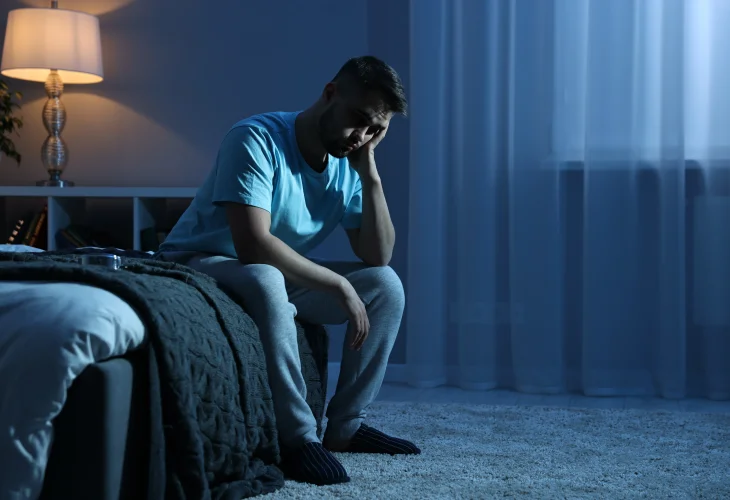Struggling to Fall Asleep? Stop Doing This!
Having trouble falling asleep at night? Tossing and turning with no idea why? You might be making one of these common sleep mistakes without even knowing it!

We’ve all been there – lying in bed, turning from side to side as the minutes tick by. The clock advances, and you’re still wide awake. Not exactly fun, right? Recently, Dr. Meyer Figuera shared on TikTok what you really shouldn’t do if you’re struggling to fall asleep. Dr. Figuera explained, "The first thing you don’t want to do is stay in bed. If after 30 minutes you’re not asleep, your brain is too active, and you need a change of scenery."
Dr. Figuera suggested to his followers that they move to another room with soft lighting and engage in a calming activity such as knitting, reading, or simply gazing out the window. "You need to restart the secretion of melatonin by the pineal gland," he said, emphasizing that this needs to happen without screens like phones, computers, or TVs.
Inspired by Figuera's viral video, we’ve compiled some common sleep mistakes and how you can avoid them.
1. Don't Just Lie There Struggling
As the doctor suggested, the first thing to stop doing when you can't sleep is simply lying there hoping sleep will come. After 20-30 minutes of sleeplessness, the bed becomes associated with wakefulness and frustration. The solution? Take a break – get up, move to another room, do something relaxing like reading a book or listening to soft music. When fatigue returns, go back to bed.
2. Don't Watch the Clock
Just seeing the clock tick can cause anxiety and add pressure. Time marches on, and you’re reminded of how few hours you have left to sleep. The best way to deal with this is simply to stay away from the clock. Turn your phone face down or move the clock out of view to ease the pressure.
3. Resist the Phone!
One of the biggest mistakes is picking up the phone, scrolling through Instagram, or checking messages when you're struggling to sleep. Screens emit blue light that suppresses melatonin production – the hormone that helps you sleep. Instead of diving into social media, try reading a book or using guided imagery to calm your mind.
4. Don’t Start Planning Tomorrow's Tasks
Is your mind working overtime? You’re not alone. Many people begin to think about everything they need to do the next day when lying in bed. If this happens to you, try stopping these thoughts by practicing meditation or the "4-7-8" method. It’s a simple breathing technique recommended to calm the body and mind: Inhale for 4 seconds, hold the breath for 7 seconds, exhale slowly for 8 seconds. Repeat until you feel more relaxed.
5. Don’t Force Sleep
Forcing sleep does the exact opposite. When you pressure yourself to fall asleep, the body’s tension increases and makes sleep even harder. Instead of trying forcefully, accept that it might take a few more minutes and try to rest calmly.
6. Avoid Heavy or Sugary Meals
It’s tempting to grab a late-night snack when awake, but avoid heavy or sugary meals as they can disrupt digestion and make falling asleep harder. If you’re genuinely hungry, try something light like yogurt or a small piece of fruit.
7. Skip the Coffee or Tea
Caffeine and caffeinated tea can linger in your body for hours and affect sleep ability. Even if you’re used to having coffee late, it can still disrupt natural sleep cycles. Swap your coffee for water or calming herbal teas like chamomile.

